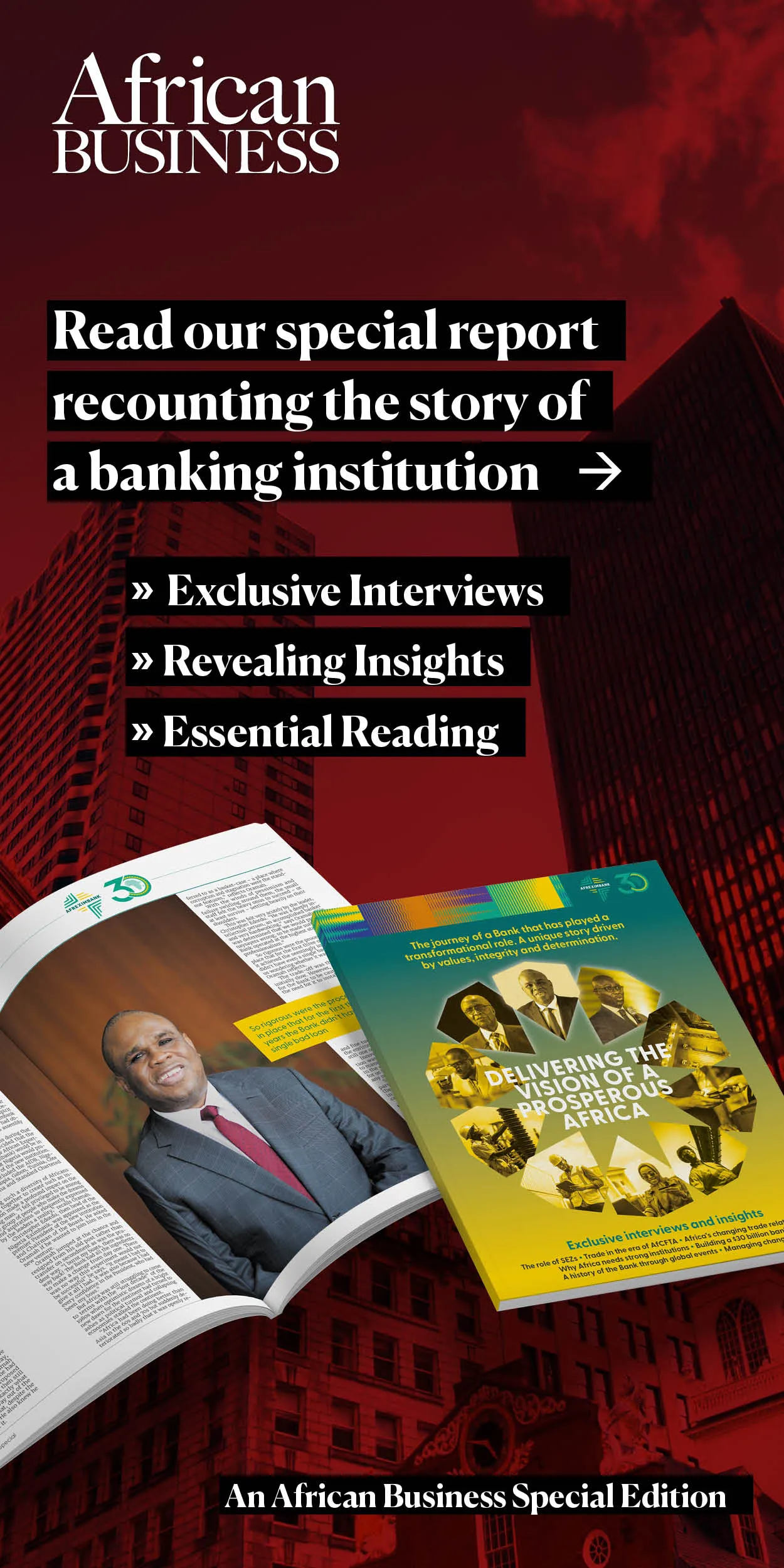This article was produced with the support of Afreximbank
For two regions with such a deeply entwined history, economic ties between Africa and the Caribbean are relatively limited. However, the creation of the African Continental Free Trade Area (AfCFTA) seems to have reinvigorated African initiatives to promote trade with the rest of the world, as well as between AfCFTA member states.
The two regions have a shared history based on the Trans-Atlantic slave trade, which resulted in much of the African Diaspora living in the Caribbean. Indeed, most attention until recently focused building on historic ties, particularly through events to commemorate the devastating slave trade.
Greater South-South cooperation and trade have been discussed since the 1970s, including through the Organisation of African, Caribbean and Pacific States, but actual trade volumes have remained stubbornly low. The most recent figures on inter-regional trade come from 2017, when Africa exported just $258m to Caribbean Community (CARICOM) countries, importing $449m in return.
In 1998-99, efforts were made to build ties between CARICOM and the Southern African Development Community (SADC) but made little headway. Direct diplomatic representation is limited, with only Guyana, Jamaica and Trinidad and Tobago having resident diplomatic missions in South Africa, while just Jamaica and Trinidad and Tobago are represented in Nigeria.
This is largely down to the lack of travel between the two regions, but also due to financial constraints of mostly very small Caribbean countries. In return, Morocco has had an embassy in St. Lucia to cover the entire region since 2015, while Nigeria and South Africa have missions in Jamaica and Trinidad and Tobago.
Trading relations have been limited, partly because of the limited size of the Caribbean’s population and GDP, but also because African and Caribbean economies have traditionally competed for many of the same niches in the global economy: the export of agricultural products and other raw materials to the industrialised world.
However, noteworthy recent economic connections include the Central Bank of Nigeria’s decision awarded the contract to develop its new digital currency, eNaira, to fintech company Bitt Inc, which is based in Barbados. In addition, Nigerian investors hope to buy a 75% stake in ailing Caribbean regional airline LIAT. Republic Bank of Trinidad and Tobago has a subsidiary in Ghana, while Jamaican conglomerate Grace Kennedy Group was active in the same country from 2012 until 2018.
There are very few direct air and sea links between the two regions, although direct air services between the Caribbean and Ghana and Kenya have been proposed. There is scope for greater tourism, with the people of the Caribbean encouraged to connect with the territories their ancestors came from, perhaps even to research their genealogy.
Very few bilateral tax and investment agreements are currently in place, although Barbados and Rwanda are to sign an investment agreement this year. The Caribbean has simply not been regarded as an economic priority by African countries in the past. However, Afreximbank has announced that it is to provide trade finance via the new Africa-Caribbean Trade and Investment Financing Facility with initial capital of $250m.
Moving closer
Several African leaders and multilateral organisations have sought to promote economic relations and more general ties with the Caribbean over the past three years. In June 2019, Ghanaian President Nana Akufo-Addo visited five English speaking Caribbean countries: Barbados, Guyana, St. Vincent and the Grenadines, Trinidad and Tobago and Jamaica, signing bilateral cooperation agreements in the process. The government of Ghana called for a stronger relationship between the African Diaspora and the African continent during its 2019 Year of Return.
An African and Caribbean Heads of State and Government Summit was held in Nairobi in September 2021. At the summit, then Kenyan president Uhuru Kenyatta called for the two regions to work together to tackle the challenges posed by Covid-19, rising debt levels, climate change and the blue economy. CARICOM and the African Union used the event to highlight the work they had dually accomplished to promote more equitable access to Covid-19 vaccines, with Barbados’s Prime Minister Mia Mottley commenting: “There is nothing like an idea whose time has come”.
At the event, the Prime Minister of Antigua and Barbuda – and CARICOM Chairman – Gaston Browne said: “We must establish structures of cooperation to promote our mutual socio-economic interests; increasing investment and trade, and people-to-people exchanges between Africa and the Caribbean. We should resist being pushed to the margins of international decision-making and collaborate on decisions to restructure the global financial architecture, on global taxation, derisking, climate change and reparations among others.”
On 1-3 September, Barbados is to host the inaugural AfriCaribbean Trade and Investment Forum (ACTIF), which being organised by Afreximbank, the African Union Commission, the AfCFTA Secretariat, Africa Business Council, CARICOM Secretariat and Caribbean Export Development Agency, as well as the government of Barbados.
The Forum, which is to be held on an annual basis for the two regions to analyse the global situation and their “place within it”, seeks to promote collaboration and unity and cultural engagement but the main focus is on promoting trade. While specific trade deals are possible, such events are principally important for highlighting the potential of new trade relationships and encouraging business leaders to widen their perspectives.
CARICOM is a collection of 15 countries and dependences, only one of which is not Anglophone – Haiti. However, it should be noted that CARICOM has a population of just 19m in comparison with the total Caribbean population of 44m. Two of the most populous countries in the Caribbean – Cuba and the Dominican Republic – are not members, and are often considered as something separate from the rest of the Caribbean. English-speaking African countries share a common language with 14 of the CARICOM member states, while Francophone countries have linguistic ties with Haiti.
 Sign in with Google
Sign in with Google 
